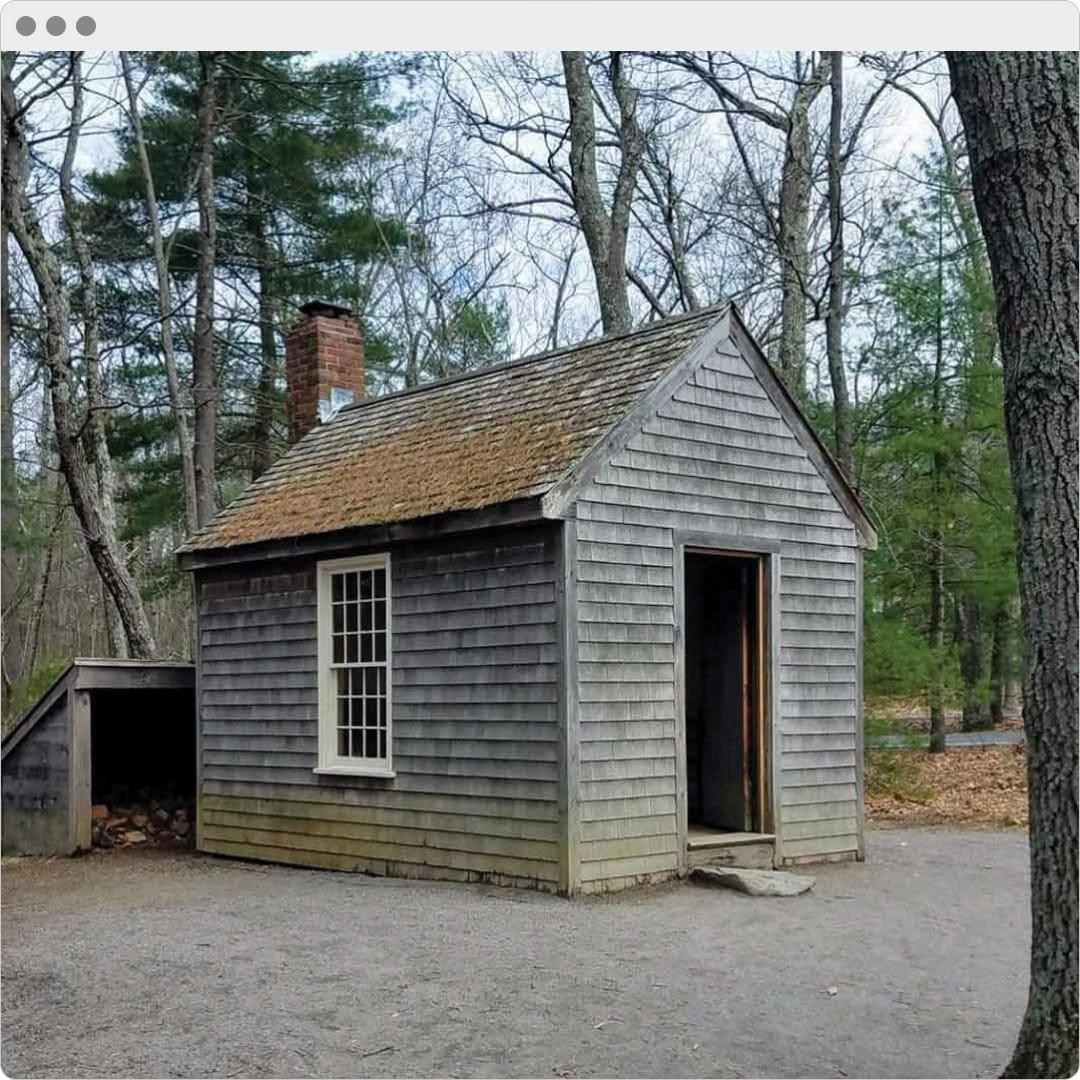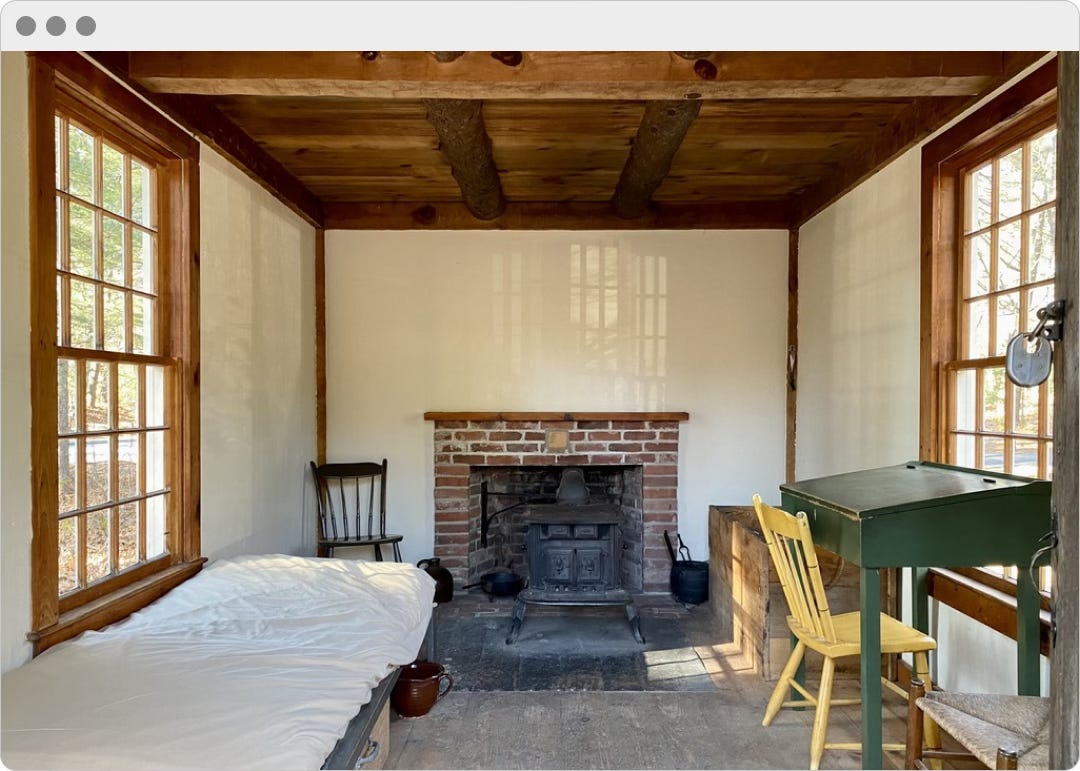006: Walden and the spiritual urgency of minimalism
A reflection on waking up to what matters most
In July of 1845, Henry David Thoreau stepped away from the rhythms of ordinary life in Concord, Massachusetts, and into the woods beside Walden Pond. There, in a one-room cabin of his own making, he began an experiment, not in self-denial or survival, but in clarity. He wanted to see what life looked like when pared down to its essentials, when a man was no longer entangled in the unnecessary. He stayed for over two years, not to escape the world, but to look at it squarely and without illusion.
His experience became Walden, a book that has outlived its context and become something more than a literary work. For me and many others, it is a mirror held up to society, a quiet rebellion, and, above all, a spiritual meditation. Thoreau went to the woods, in his own words, “to live deliberately.” That declaration has never stopped ringing.
Today, the echo of his retreat can be felt in a different but related movement: minimalism. Strip away the branding and the lifestyle influencers, and what remains is something elemental. A hunger to return to what is vital. A wish to stop sleepwalking through days that feel too busy and yet strangely empty. A sense that something is deeply off.
The weight that accumulates
Thoreau’s era lacked many of the things we consider essential today. But even in that slower, quieter 19th-century life, he saw something that disturbed him: neighbors exhausting themselves for comforts they did not need, for lives that did not feel like their own. He described it plainly. He wrote of men who had become the tools of their tools, slaves to their own convenience. The more they owned, the less free they seemed: “We are lost in details, frittering life away while the moments that matter slip past unnoticed.”
On first thought, I can only imagine that he would be astonished by our world now. But then, I’m not so sure. I think he would recognize it instantly. Different objects, different names, same hunger. Today, our homes bulge with excess, and our attention is scattered in a thousand directions. The physical clutter is mirrored in our mental and emotional lives. We are inundated by advertisements, notifications, obligations. We schedule every moment but rarely stop. We are surrounded by information but starving for wisdom.
There is a cost to this accumulation, not just in our time and money, but in our spirit. We have forgotten how to be still. We no longer know how to be empty, and so we fill. We fill our closets. We fill our calendars. We fill the silence with noise. And still, we are restless. Still searching.
Minimalism as spiritual practice
Minimalism is an elevation of life rather than its reduction. About living more fully and more consciously. It’s about discernment—choosing what aligns with your values, what nurtures your soul, and letting the rest fall away.
This is the heart of Thoreau’s project. His cabin was not a prison, but a sanctuary. He did not give up comfort for the sake of proving a point. He gave up distraction to reclaim presence. His days were filled with quiet labor, long walks, reflection, and a kind of communion with the natural world that bordered on the mystical. He watched the light shift on the surface of the pond. He listened to the wind in the trees. He paid attention. And through that attention, he found something sacred.
In this context, we too can learn to approach minimalism as a sacred art. The clearing of physical space becomes a way to make room for spiritual insight. The decision to limit screen time becomes a doorway to deeper thought. The refusal to measure success by status or income becomes a declaration of independence. And in that space, and in the quiet that follows, we may begin to hear the sound of our own lives again.




